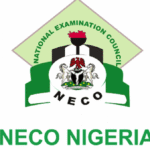NEITI clarifies FG’s revocation of 1,263 solid minerals licences
By Emmanuella Anokam The Nigeria Extractive Industries Transparency Initiative (NEITI), says the Federal Government’s revocation of 1,263 solid minerals operational licences aims to sanitise and boost investment in the sector. The development is sequel to the validation of the findings of the NEITI annual sector audit report. A statement fromContinue Reading













